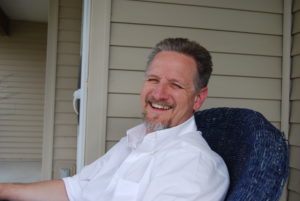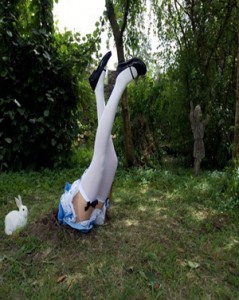How the Martial Art Aikido and Coaching School are the Same…
After coaching class last week and feeling like a clumsy oaf, I vividly remembered my first year training in Aikido. I was an experienced martial artist before I started Aikido having studied both Wing-Chun and Tae Kwan Do to an intermediate level. But, Aikido is different. Aikido is a soft art. This does not mean that it isn’t as intense  physically. It means that learning how to receive a technique is as important as learning how to execute a technique. When I began Aikido, I was pretty good at punching, kicking and blocking. But, following someone’s energy and direction, receiving a technique and flowing with it? I actively resisted this…which is at least half of the art of Aikido. One day I was coming off the mat utterly frustrated, feeling completely incompetent like I had two left feet, two right hands and if I could muster a single coordinated movement like putting one foot in front of the other, it would have been miraculous. My sensei, when on the mat, was a man of few words. Steve taught like he spoke broken English. “MOVE YOUR FOOT!!!” sternly spoken with a Japanese Samauri accent was a frequent instruction. He taught like this because he learned Aikido from a Japanese man who spoke broken English. Steve was, in fact, a white boy, born and raised in the U.S. Steve clearly saw my frustration and said something like, “When you execute a technique correctly, you are not learning anything. You have already learned it. It is only when you are frustrated that you are learning anything. What are you here for?”
physically. It means that learning how to receive a technique is as important as learning how to execute a technique. When I began Aikido, I was pretty good at punching, kicking and blocking. But, following someone’s energy and direction, receiving a technique and flowing with it? I actively resisted this…which is at least half of the art of Aikido. One day I was coming off the mat utterly frustrated, feeling completely incompetent like I had two left feet, two right hands and if I could muster a single coordinated movement like putting one foot in front of the other, it would have been miraculous. My sensei, when on the mat, was a man of few words. Steve taught like he spoke broken English. “MOVE YOUR FOOT!!!” sternly spoken with a Japanese Samauri accent was a frequent instruction. He taught like this because he learned Aikido from a Japanese man who spoke broken English. Steve was, in fact, a white boy, born and raised in the U.S. Steve clearly saw my frustration and said something like, “When you execute a technique correctly, you are not learning anything. You have already learned it. It is only when you are frustrated that you are learning anything. What are you here for?”
So, this week after a particularly frustrating experience with a difficult client, sensei’s words came back to me. I felt similarly to that moment walking off the mat, “What did I do wrong? What should I have done differently? Have I gained any competence in this at all? Can you actually, physically step on your tongue because that’s what it feels like I have been doing all night?” And, I remembered, “’What are you here for?’ This is part of the learning process. Feeling awkward, unsure of myself, uncomfortable, clumsy, oafish, all of it is part of learning. So, what am I here for? If I were an MCC level coach, I wouldn’t be taking the class to begin with. Do I want to learn or not? There’s only one way to get there: fall down and get up. Fall down and get up. Repeat until lessons are learned…”
‘Sigh,’ it is uncomfortable. After practicing Aikido, I always wake up the morning after physically sore. After practicing coaching, sometimes I get up the next day sore but in a different way. I have learned to enjoy feeling sore. It means I’m learning.
In the fall, I will be testing for my black belt. In the relatively near future, I will be testing for MCC level coaching. These points are reached only after falling and getting up, literally and figuratively countless times. It’s all good.
Tom Boomershine has been a United Methodist pastor for over 20 years. Through his ministry, Tom has coached over 100 people in their relationships, life transitions and career transitions. Author of the soon to be published book, “After Ever After,” he is currently in the process of becoming an ICF Associate Certified Coach through Marianna Lead’s Goal Imagery® Institute, International School of Coaching Mastery™. Tom believes everyone has unique gifts given by our creator to be used for a purpose.
Season’s Greetings: Giving While Receiving

One of the best ways to celebrate the holidays is by giving back. I teach that you can do it while also receiving. It’s always great to hear about one of my students successfully putting that learning into practice.
Following my suggestion, Preeta Banerjee, a recent graduate of our Holistic Life, Career & Executive ACTP Coach  Training, found a cause and a non-profit organization she believes in — The Hope Foundation — which works with schools to create successful learning communities. In exchange for having Preeta’s services promoted by another organization, she will donate 50% of her coaching fees to the Foundation to help rescue and educate girls in India* (here’s the link to find out more about Preeta: http://mytreeoflife.com/meet-preeta.html?
Training, found a cause and a non-profit organization she believes in — The Hope Foundation — which works with schools to create successful learning communities. In exchange for having Preeta’s services promoted by another organization, she will donate 50% of her coaching fees to the Foundation to help rescue and educate girls in India* (here’s the link to find out more about Preeta: http://mytreeoflife.com/meet-preeta.html?
Congratulations to Preeta for following through on the kind of practical advice you’ll get when you enroll in our trainings.
If you’re interested in becoming a coach, honing your existing coaching skills and getting clients — inquire for more information about our training programs.
Happy holidays and best wishes for the New Year!
Marianna
Upcoming 2016 Class Schedule
WINTER CLASSES:
- Tues., Jan. 5 at 7 PM EST
- Thurs., Jan. 7 at 11 AM EST
- Thurs., Jan. 7 at 4 PM EST
- Thurs., Jan. 7 at 8 PM EST
SPRING CLASSES:
- Mon, March 21 at 6:30 PM EST
- Wed., Apr. 6 at 11 AM EST
- Wed., Apr. 6 at 7 PM EST
ICF-Approved Holistic Life, Career Executive Coach Training: New Classes Start Sept. 14 at 7 PM EST, Sept. 23 at 11 AM EST and Oct. 7 at 6:30 PM EST
Chose from any of the above convenient times to start your training towards becoming an ICF accredited and certified coach.
Lessons are live, online, weekly and 2.5 hours each. Please contact us for more information. We cap each class at 10 students.
Appreciation as a Core Competency
In coaching, at times it’s crucial to be able to recognize and appreciate your client’s achievement, new type of positive thinking/behavior and/or a new, healthier response to an old situation. It is just as important to notice and appreciate a new application of our clients’ strengths and abilities. The truth is, we all want to be acknowledged. Not only it strengthens our ego (in a good way) and confidence, it also creates motivation to do even more. Appreciation and acknowledgement increases productivity and, from the position of coaching, it often creates awareness for our clients about their strengths and abilities where there was none or very little. I can’t tell you how many times I heard, “I really never thought about myself this way” in response to my comment about my client’s specific set of skills I noticed.
I was especially made aware of this competency as someone commented via social media on anniversary of my coach training programs at Goal Imagery Institute: “I hope you know how much I admire your work.” The thing is, we don’t really know unless we are told.
However, it’s not as easy as it seems. Not knowing how to do it correctly, we can sound parental or interrupt our client’s thinking if our timing is off. To learn how to express your appreciation the ‘right’ way — you may consider taking the coach training course. Goal Imagery Coach Training starts Jan. 6.
Thoughts?
The Coaching Core Competency of Creating Awareness: Competency or Outcome?
The more I teach and experience coaching, the more I’m convinced that awareness is created by implementing all other competencies, such as establishing the coaching agreement, deep listening, powerful questions and direct communication. What are your thoughts?
Coaching Tools: Passion, Strength or Value?
- Values can influence your strengths. Just because Excellence is a value, doesn’t mean that creating perfect spreadsheets makes you feel strong.
- Strengths sound very similar to passions. You may be drawn to event planning (because of your value of Creativity) while you strengths lie in other areas. It is important to understand that the knowledge or skill gap can be bridged through training or practice.
Passionate Detachment as Core Coaching Competency
Ask any new coach why she decided to pursue coaching and she will likely say that she is passionate about coaching. “I just care about my clients so much! Coaching is my passion.” The irony is that unchecked passion can only get in the way of being present as a coach. Passion can make you care too much about your client. In your desire to build intimacy with the client, you could infringe on the space they need to find their own insights. It is interesting to me that while building intimacy is listed as a competency, learning to practice detachment is not. Detachment is not indifference. It is recognizing that you are just a guide on your client’s journey, but it is their journey. So even in your passionate desire to help them, you need to distance yourself. You need to allow them to find their own way whether they crawl, walk, run or build a spaceship to get to their destination. What do you think? Do you agree that to be an effective coach, detachment is just as important as passion?
Guest Blog by Kay Fudala, Consultant and Creative Coach at www.kayfudala.com, currently enrolled with Goal Imagery Institute Holistic Life and Career Coach Training.
Fringe Benefits of Coaching and Learning to Coach
Thinking about becoming a Coach?
It’s hard work, but there are a number of great “fringe” benefits to going through the program. Here are a few of my favorites:
#1 Collaborating with other like-minded people.
Not only do we share ideas, but we support each other, and as you learn a new skill, that support makes a huge difference.
#2 Coaching is a little like therapy but it can be therapeutic.
It’s not the same as therapy nor it should be, but you do talk out your problems with a supportive listener. And, really, doesn’t everyone need that sometimes?
#3 Our class is part of a much larger network of students and professional coaches.
These are vital connections as we move forward…Need advice? Ideas? Support? Coaching? Just click!
#4 Learning to coach is like having a detailed framework on how to connect with and engage with other people respectfully.
Attentive listening, being in the moment, and asking permission before sharing unsolicited advice…priceless!
As I mentioned at the beginning, these are fringe benefits, and don’t even take into account the main idea…receiving training may very well start you off on a new career path that you love. Enough said!
Submitted by guest blogger, Santina Devine, who is currently enrolled in the 6-month Holistic Life and Career Coach Training Course at Goal Imagery Institute.




